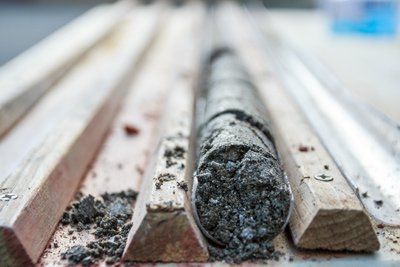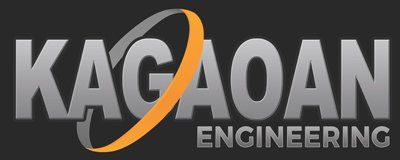Subsurface Soil Investigations
Subsurface Soil Investigations for NYC, Manhattan, The Boroughs, Nassau County, Suffolk County, Long Island, and New Jersey - Kagaoan Engineering

Subsurface Soil and Groundwater Inspectors and Consultants
Geotechnical engineers use analytical reports like the subsurface soil investigation and water table map data to help them decide how to proceed on a construction project whether it is for building a new school, redeveloping along the highway, or expanding a business. The information they gather allows them to advise architects and developers about potential foundation issues or problems with the soil or water in an area. These specialists help solve problems with existing structures and foundations too.
Contact us for free consultation.
Knowing the Composition of the Soil and Water Under a Building Site or Structure Helps Geotechnical Engineers Designs
The saying, "knowledge is power," rings true in the geotechnical engineering field. Engineers use in-depth research to help them put the pieces of a puzzle together to give them a clear picture of a particular area. They work in a variety of fields like highway design or advising architects as a consultant performing water and soil studies. Using the details about the underground composition of an area and what water sources affect the property gives the engineer clues about how to fix structural issues or create a foundation that works with the natural characteristics of the property.
What Happens in a Subsurface Soil Investigation?
First, a soil investigation is given a class designation. There are three primary classes, the new structure class, revitalizing projects, and material mining. The scope, length, and composition of testing in any class must follow strict regulations to ensure that all Federal, municipal, tribal, and state laws are not broken. Once a classification is given, the five-step investigation can begin.
The first part is reconnaissance to study the site and collect data. Next, deep boring into the soil and water table provides answers about minerals, aquifers, soil layers, and more in the preliminary part of the process. New tests or expanding studies continue in the exploration phase. Site analysis gives answers to questions about the project, ground, and water tables. This part is the stage where builders can begin to engineer structures using the information from the investigation. The final phase is to look into costs and budget constraints.
Top four characteristics of a water investigation
- Drilling and collecting samples and classifying the results
- Pressure tests
- Geologic studies to show how the natural composition of the area affects the way the water travels and replenishes itself
- Placing measuring devices in certain soil layers for data collection
How Does a Ground Water Investigation Work?
Testing the soil for water sources and how wet or dry the ground is done by inspecting boring samples and information about the climate, aquifers, water tables, soil composition, and much more. There are four primary methods of exploration being the subsurface method that we will mainly discuss, the esoteric method, the areal method, and the surface investigation. Each of the four categories has more subsets that the engineer uses to classify the investigation. After gathering the data and reading the reports, the specialist ensures that the site meets the needs of the client or governing entity before giving suggestions and recommendations about new builds or refurbishing existing structures in the case of foundation cracking, settling, or stress. Water access for site operations is another area that geotechnical designers study for developers.
Data Found in Boring and Water Composition Reports
- Well size, location, and yield
- Quality of the water and soil
- Mineral reports
- General composition of the soil and water sources
- Replenishment sources and frequency
- Landslide, flooding, and water drainage projections
- Stream and creek flows and direction
- Elevation changes and grades
- Maps of the area
Solving Building Stress and Foundation Issues
Whether a structure is experiencing problems with shifting or showing signs of stress due to water problems, a geotechnical engineer can start finding out more about the problem by looking at information in water and soil reports. They use the data about the site along with visual inspections to help them determine the best course of action. They also ensure that solutions fit the specifications of local or national regulatory bodies. Once they have a clear idea of the problem, they provide in-depth reports to developers and construction firms to give them cost analysis of the solution and the information backing the decision.
Who Uses Geotechnical Engineering Reports About Soil and Water
At some point, every business or construction company comes in contact with engineers that provide water table maps, foundation fixes or build forecasts for new structures. Residential homeowners interact with engineers when they need to build a well on private property. They may also talk with one when a house begins to settle, show signs of cracking or have foundation issues. The specialist provides information ahead of a build, to solve foundation issues, or to recommend the best methods of material collecting.
Subsurface soil investigations and water testing methods help engineers ensure that building sites are ready to handle the construction, size, and needs of a build. They are helpful when setting up new residences, and finding out why foundations are cracking. Geotechnical engineers provide reports on water levels, soil makeup, and mineral content to help architects and building owners find the best ways to erect a new building or refurbish an existing structure.
Please contact us
for a free consultation.
About Kagaoan Engineering
Every member of Kagaoan Engineering is an experienced professional who brings distinct strengths and specialities to the company. We work together as team to ensure that your project has the skill sets required to succeed.
Copyright 2017 The Kagaoan Engineering. All Right Reserved. Art Commercially Licensed by Shutterstock.

